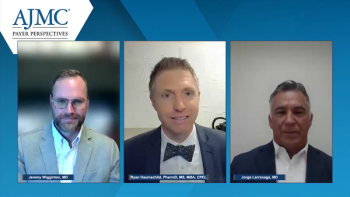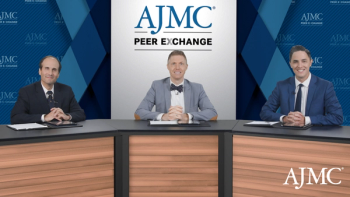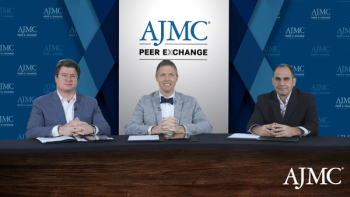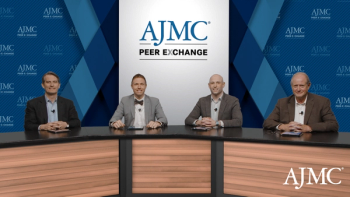
Panelists discuss the significant clinical and economic burdens of lupus nephritis, including the increased risk of kidney failure and death, and provide current statistics on the prevalence and incidence of lupus nephritis in various populations.

Panelists discuss the significant clinical and economic burdens of lupus nephritis, including the increased risk of kidney failure and death, and provide current statistics on the prevalence and incidence of lupus nephritis in various populations.

Medical experts discuss how to frame the conversation with patients about third-line metastatic colorectal cancer treatment selection, balancing efficacy, safety, and overall prognosis.

Medical experts offer their insights and closing remarks regarding patient feedback for MDS.

Medical experts discuss considerations and patient guidance for oral and IV HMAs.

Medical experts compare the efficacy and safety of new therapies, including FTD/TPI plus bevacizumab and fruquintinib, to regorafenib for metastatic colorectal cancer.

Medical experts discuss additional factors for sequencing therapies such as FTD/TPI plus bevacizumab, fruquintinib, and regorafenib, and identify future research needs for optimizing therapy sequences.

Medical experts highlight key data from the FRESCO-2 trial on fruquintinib for previously treated metastatic colorectal cancer, focusing on study population, efficacy, and safety, and discuss real-world experience with fruquintinib compared with trial outcomes.

Medical experts discuss innovations and future directions in treatments for higher-risk MDSMedical experts offer patient perspectives on advantages and disadvantages of using oral HMAs vs injectable HMAs.

Medical experts discuss innovations and future directions in treatments for higher-risk MDS.

Medical experts discuss key takeaways from the SUNLIGHT trial, which compared FTD/TPI monotherapy to FTD/TPI plus bevacizumab for advanced metastatic colorectal cancer, including overall survival, safety, and benefits regardless of prior bevacizumab therapy, and how this data has influenced the use of FTD/TPI in the third-line setting compared with real-world outcomes.

Medical experts review therapy options for metastatic colorectal cancer after FOLFOX/FOLFIRI, emphasizing regorafenib, FTD/TPI plus or minus bevacizumab, and fruquintinib due to the rarity of targetable biomarkers.

Medical experts offer insights on the persistence and effectiveness of HMAs in patients with higher-risk MDS.

Medical experts discuss convenience and efficacy in higher-risk MDS regarding oral vs injectable HMAs.

Medical experts discuss the data gathered from the ASCERTAIN trial.

Medical experts offer insights on the COMMANDS trial findings.

Medical experts discuss risk-based approaches to choosing MDS therapies.

After a brief introduction, medical experts discuss advances in MDS classification and molecular understanding.

A group of experts discuss implications for patient access in CLL.

A panel of experts discuss navigating access challenges in CLL treatment.

Experts discuss financial challenges of BTK inhibitor therapy.

A panel of experts discuss combination regimens with BTK inhibitors.

The panel concludes its discussion by providing key takeaways on the evolving RSV vaccination landscape.

Experts on RSV provide insights on improving RSV vaccination rates, highlighting ways to navigate misinformation.

The panel discusses what’s needed for payers to activate early coverage for RSV vaccines in adults and how coverage has been since the approval of the 2 RSV vaccines.

A discussion on therapeutic decision-making in CLL and the role of real-world evidence.

Experts discuss leveraging MAICs for decision-making when choosing a CLL BTK inhibitor.

An internal medicine pharmacist discusses current and potential obstacles related to administering RSV vaccines to patients from different age groups.

Experts from clinical and payer backgrounds discuss how patients eligible for the RSV vaccine can be identified.

Heidi Crayton, MD, and Maria Lopes, MD, discuss future research in multiple sclerosis that they find exciting and promising.

Key opinion leaders discuss the single FDA-approved option for primary progressive multiple sclerosis and emerging therapies under investigation for this MS subtype, examine the PERSEUS trial, and address concerns they anticipate with the potential approval of BTKis for MS patients and strategies for mitigating these concerns.

259 Prospect Plains Rd, Bldg H
Cranbury, NJ 08512
© 2025 MJH Life Sciences®
All rights reserved.
